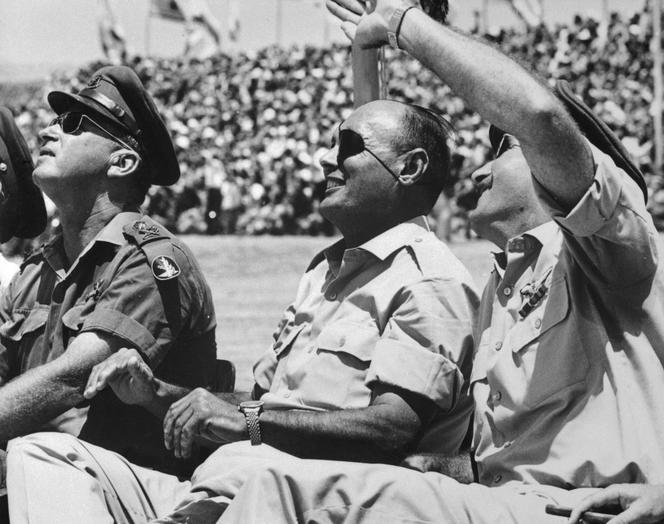


The Nahal Oz kibbutz, in the northeast of the Gaza Strip, was one of the locations martyred by the Hamas terrorist offensive on October 7. In 1951, it was the first settlement of the "Fighting Pioneer Youth," whose Hebrew acronym is Nahal. The Nahal program, conceived by David Ben-Gurion in the wake of the first Arab-Israeli war of 1948-1949, aimed to anchor both civilian and militarized outposts in the most sensitive border areas.
In April 1956, one of Nahal Oz's guards, Roi Rothberg, was murdered by Palestinian infiltrators from Gaza. Given the level of shock in Israel at the time, Chief of Staff Moshe Dayan came to Nahal Oz in person to deliver a eulogy, the words of which have particular resonance in today's tragedy.
"Let us not hurl blame at the murderers. Why should we complain of their hatred for us? Eight years have they sat in the refugee camps of Gaza, and seen, with their own eyes, how we have made a homeland of the soil and the villages where they and their forebears once dwelt. Not from the Arabs of Gaza must we demand the blood of Roi, but from ourselves." The chief of staff urged his compatriots never to forget that "beyond the furrow that marks the border, lies a surging sea of hatred and vengeance."
In November 1956, Israeli troops occupied the Gaza Strip with the declared aim of eliminating the presence of the fedayeen, as the Palestinian fighters were called. During the four months of occupation, a thousand Gazans – one in every 300 – died.
Ten years later, Dayan, then minister of defense, once again seized the Gaza Strip, with Yitzhak Rabin as chief of staff. The two heroes of the June 1967 Six-Day War were in favor of an occupation without colonization. Dayan ordered the removal of all visible separation between Israel and the Palestinian territory, whose population was encouraged to work in Israel, soon making these wages Gaza's main resource.
Dayan joined Menachem Begin's government as foreign minister after the Likud's historic victory over Labor in May 1977. But Begin concluded peace with Egypt in March 1979, only to be able to colonize the West Bank and Gaza, forcing Dayan to resign. Likud's hard-line stance eventually led to the emergence of a pro-peace movement in Israel, which won the June 1992 elections under the leadership of Labor's Rabin.
Rabin may have reached a peace agreement with Yasser Arafat and his Palestine Liberation Organization (PLO) in September 1993, but he was adamant that terrorism had to be fought as if there were no negotiations, and to negotiate as if there were no terrorism. Rabin, who fell victim to the bullets of a Jewish terrorist in November 1995, was convinced that talks were bound to take place, even in the midst of violence, precisely to extinguish that violence.
You have 40% of this article left to read. The rest is for subscribers only.
